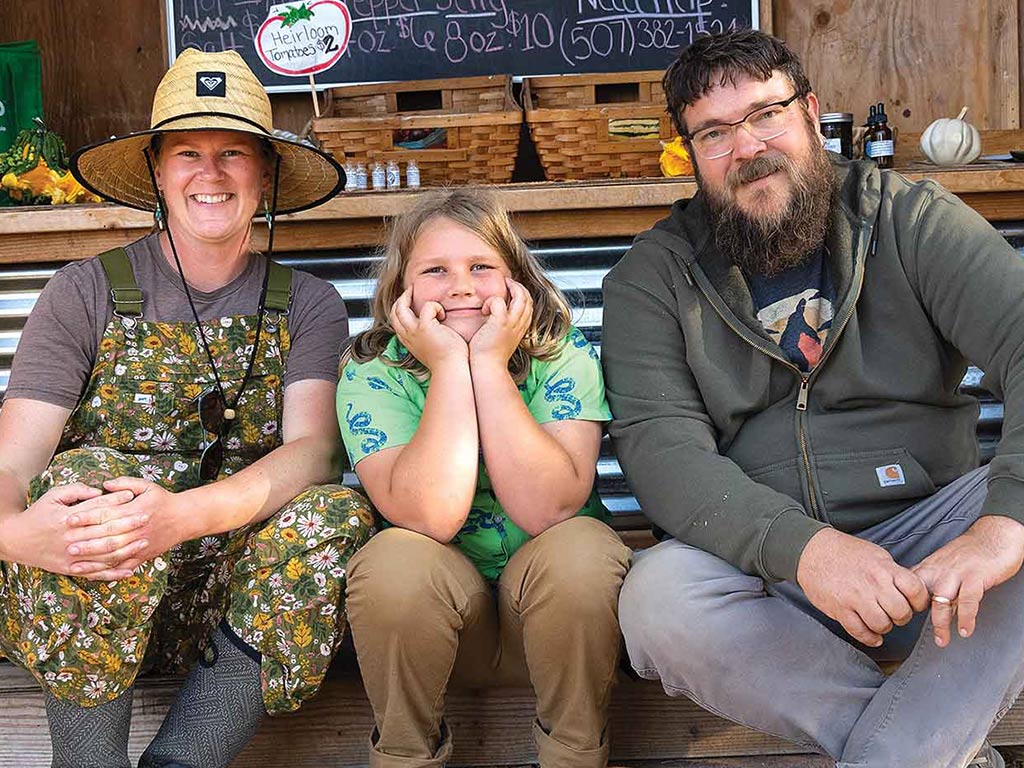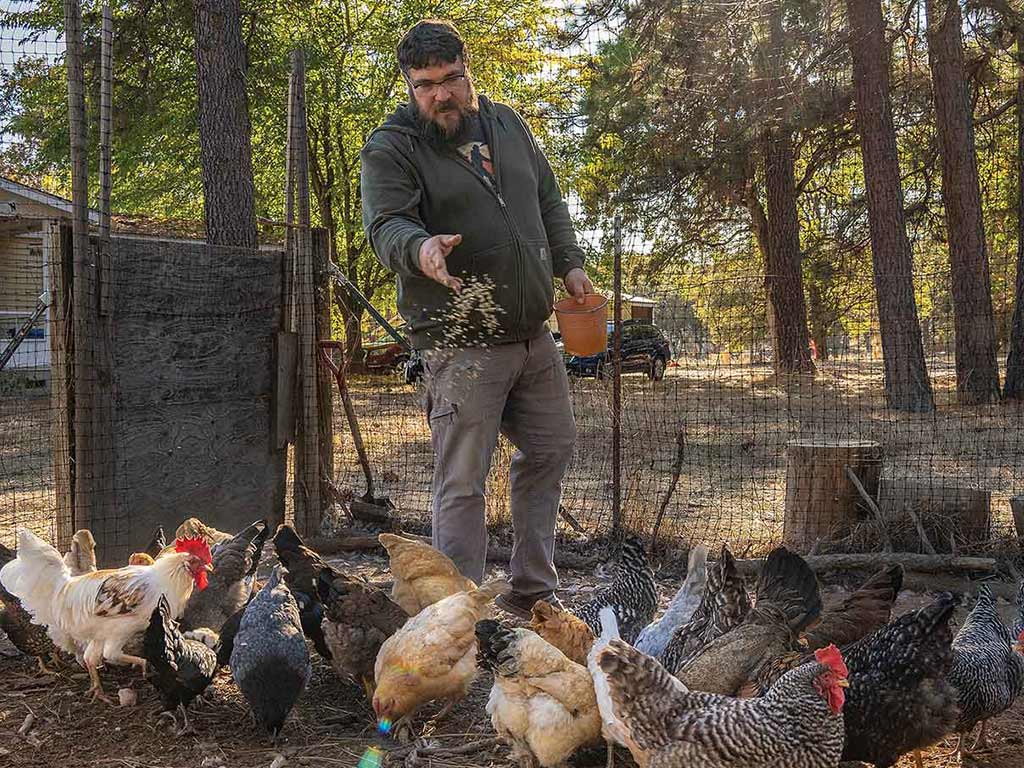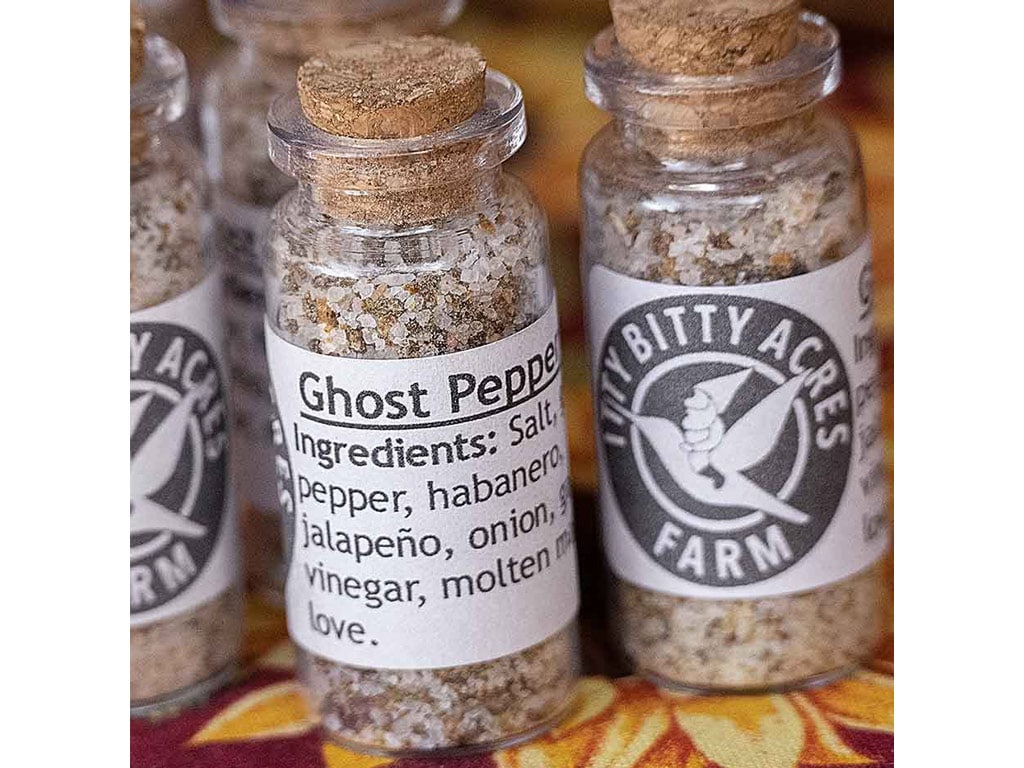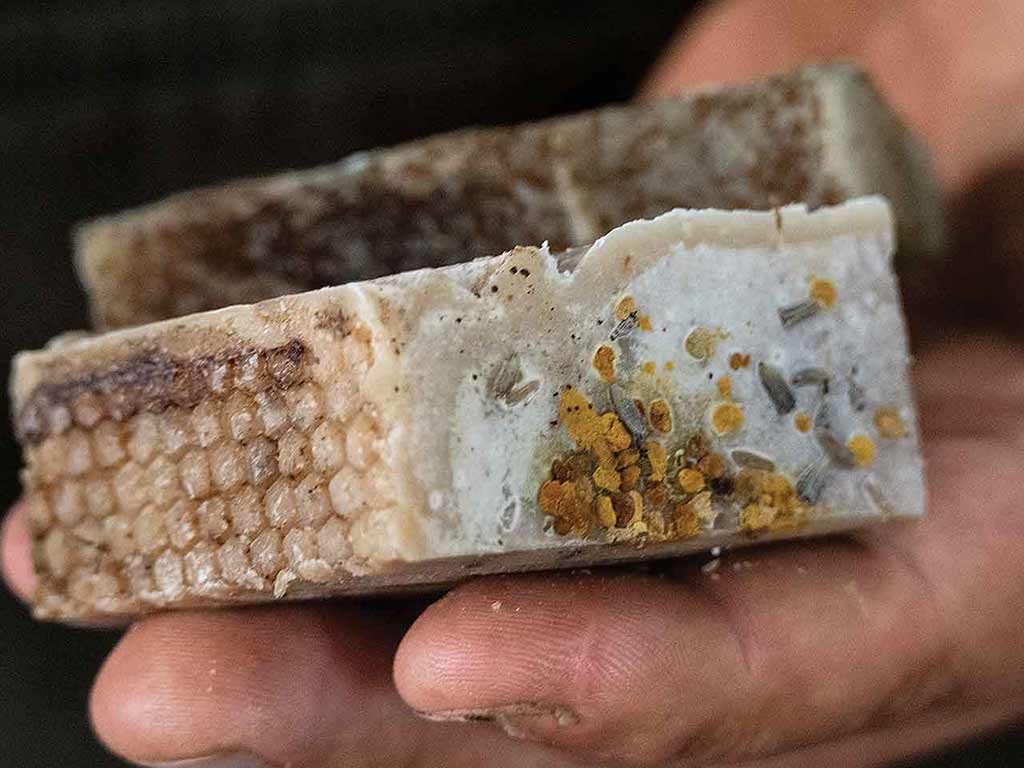Agriculture, Specialty/Niche June 01, 2025
Big Things Under the Surface at Itty-Bitty Acres
Small farm enlists massive microbe army to nurture crops.
by Steve Werblow
Ryan, Erica, and Kai Idso-Weisz hadn't been living on their 3-acre homestead near Sams Valley, Oregon, long when it came time to bury a chicken. That's when they realized something was wrong.
"The soil was so hard," says Ryan, recalling the summer of 2021. "I had to get a pickax out to dig a hole."
To say the least, the tight, tired soil under the old pasture was a world away from the loamy prairie soil Ryan's grandparents farmed on the Minnesota prairie. Nor was it like the ground at the Montana ranch where Erica grew up. They realized immediately that their soil needed help. Fast.
Silence. Another symptom of the farm's malaise was the quiet.
"The thing I remember the most is the silence," Ryan recalls. "It was so quiet here except for the cars driving by. Then as we started working the soil and planting things, it started getting louder. The birds came in, then the frogs came in. Then, of course, you get the bugs because you're growing stuff. All of a sudden, this place just started jumping with life.
"That was the first indicator that, 'yeah, we're doing alright,'" he adds.
That represented a victory well beyond the ability to grow the luscious tomatoes, spicy chile peppers, rich greens, and flavorful herbs they love. The Idso-Weiszes named their farm Itty Bitty Acres not just because of its diminutive footprint, but because of their philosophy about putting their environmental ethic to work.
As Erica notes, "you do your itty bitty part to take care of the world. You don't have to set out to save the whole thing, but you really should do your itty bitty part."
Above. Erica, Kai, and Ryan Idso-Weisz take a break at the farm stand at the end of their driveway. Ryan gives the chickens something to cluck about. A dedicated chile-head, Ryan uses produce from the farm in a line of flavored salts. Soap is another farm-made offering; the family also jars honey, jams, salsas, and pickled goods.
Effort. Getting from impenetrable ground to friable, healthy soil took a lot of effort and investment, although they initially set out to cultivate just over an acre.
"The first year, we worked with a lot of manure, just trying to fix up the soil," Ryan explains. "We were buying a lot of compost. It's expensive, even on a micro-farm."
But it wasn't long before microbe communities re-established to bring life back into the soil. So did earthworms, to Erica's delight. (She has a reputation for evangelizing about worms.)
Today, 20 hens and a rooster live happily over the drain field and are released daily into the vegetable plot, contributing eggs, manure, and insect control to the Itty Bitty ecosystem. Oyster shells add calcium and deter slugs. Thick, black polypropylene covers salvaged from nearby greenhouses shade out weeds.
Off the farm, Ryan works for the Rogue Valley Farm to School program and Erica is a couples and family therapist. She points out that therapy is a perfect background to bring home to the farm.
"I'm most interested—and always have been—in systems, getting systems to communicate and coordinate and collaborate," she says. "We kind of live that in our work life and our farm life. It all goes together—and, of course, the mental health from having your hands in the soil."
Through Oregon's rainless summers and into the chilly fall, the Idso-Weiszes feed the soil with compost and feed their bees by letting brassicas and herbs bolt. That provides nectar when most other flowering plants are bare.
"It's all experimental, always figuring out what works best and seeing what's most happy out there," Erica points out.
The family's 1.2-acre vegetable patch is surprisingly productive. They are inspired by The Lean Farmer by Ben Hartman, which preaches efficiency in all aspects of the farm, from how to organize tools to which crops to plant in every square foot of space.
"You don't have to have 10,000 acres to have a farm," explains Ryan. "You can do it small and compact and you can get literal tons of food off your property." Itty Bitty's product offering is vast. It is also as interlinked as the ecosystem behind it.
The family sells its freshest produce in a little farm stand at the end of their driveway. Surplus harvest and produce starting to fade ends up in bottles and jars as delicious jams, salsas, fermented krauts and slaws, or flavored salts sold in their stand or at pop-up markets. Or Erica cooks those ingredients in her catering business, Mountain Mama Kitchen.
The last resort for scraps is the compost pile. That food finds its way back to the soil, sustaining the microbes and worms that have made such a huge difference at Itty Bitty Acres. ‡
Read More

SPECIALTY/NICHE
Sound of Music
Hosting a concert series draws new visitors to orchard.

AGRICULTURE, EDUCATION
Breaking the Cold Barrier
Peach varieties push northern boundaries.





